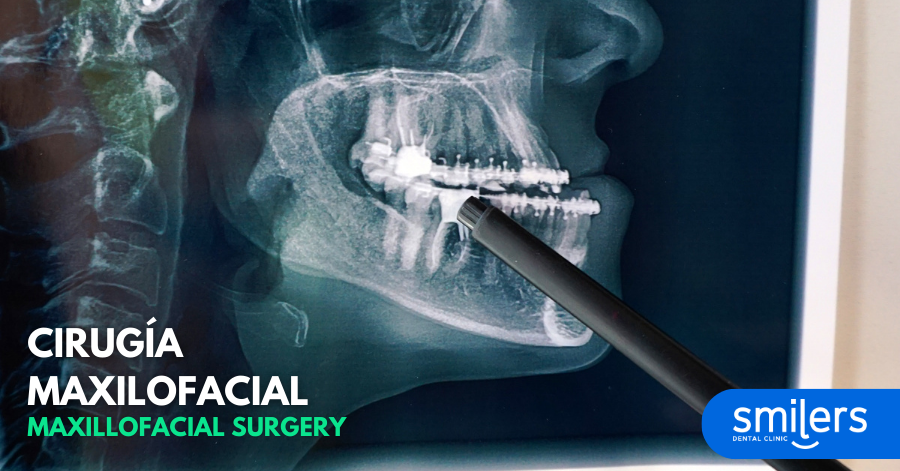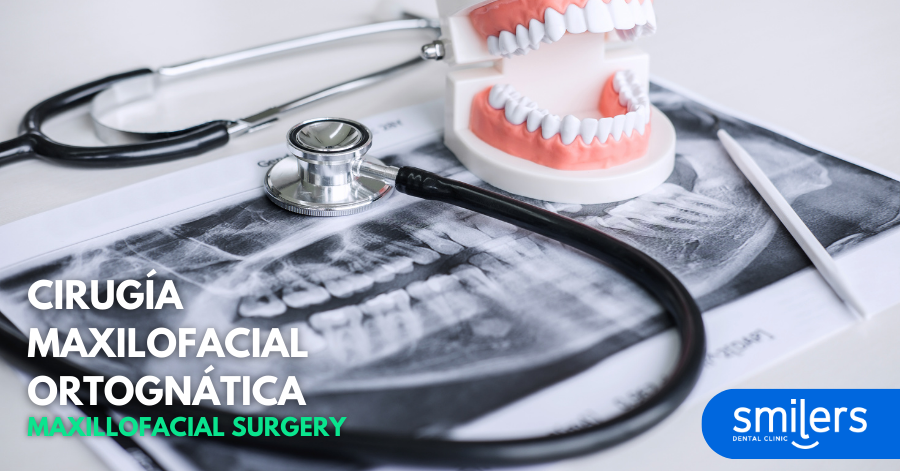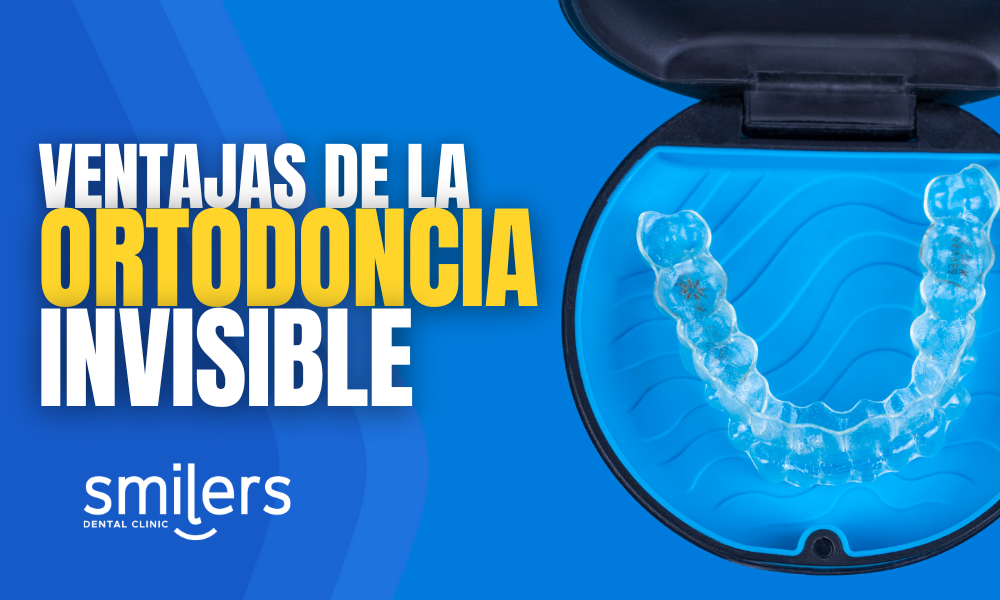In recent years, the demand for treatments and interventions related to maxillofacial surgery has grown, being this a specialty whose main objective is to improve both the aesthetics and, especially, the oral functionality of the patient. In addition, we are talking about a specialty that offers effective solutions in other areas of the body, such as the face or neck.

Through this article we will expand the information related to maxillofacial surgery and, in this way, we will understand the importance and impact of this specialty today.
What is maxillofacial surgery?
We can define maxillofacial surgery as the medical specialty that specializes in the study, prevention, diagnosis and treatment of any problem related to the anatomical structures of the face, skull, head and neck, as well as those related to the oral cavity, jaws and teeth.
It is common to confuse the figure of a maxillofacial surgeon with a dentist, however, it is necessary to clarify that they have different functions (although they may coincide in some aspects).
The main difference between the two professionals is that the maxillofacial surgeon, unlike the dentist, is usually a medical doctor (although there is a specialty in which the dentist can have this academic degree).
Specialization in Oral and Maxillofacial Surgery at the UNAM
In addition, the knowledge that this professional possesses is not only reduced to dental knowledge, since they also have advanced notions related to oncology, facial aesthetics or facial reconstructive surgery.
In any case, it is common to find both professionals in a dental clinic, since they offer all kinds of solutions to patients in any aspect related to their mouth.
What treatments does a maxillofacial surgeon perform?
To better understand the importance of a maxillofacial surgeon, it is necessary to know the functions he performs in his professional activity.
- Reconstruction: First of all, one of the most outstanding functions that this specialist will develop is the reconstruction of the jaws of those patients who have suffered an accident or in case of genetic malformation (orthognathic surgery).
- Tumors: In addition, we are before the professional indicated for the extraction of tumors or oral cysts, this being one of the most reliable and recommendable alternatives that we have at our disposal.
- Extractions: As a general rule, dental extractions are performed by a dentist, although there are occasions where this process can be more complex, as for example in the extraction of wisdom teeth that are located near the nerve and this is where a maxillofacial surgeon (or a dentist with a specialty in oral surgery) intervenes, who will be in charge of performing those dental extractions that are complex.
- Dental implants: On the other hand, the insertion of dental implants requires, in some cases, a previous bone graft, whose main objective is to provide greater support to the implant, and this intervention should also be carried out by a specialist in maxillofacial surgery.
Likewise, if we talk about the insertion of dental implants, one of the most demanded treatments nowadays, it is important to know that, sometimes, they are performed by a maxillofacial surgeon or, failing that, by a specialist in Implantology who has the appropriate knowledge to successfully carry out this surgical process, whose main objective is to recover both the esthetics and the functionality of the patient by replacing the dental pieces that have been lost.
Tumors in the mouth have been gaining prominence in recent years. As a general rule, the role of the dentist is fundamental when it comes to detecting an oral tumor prematurely.
In case he suspects that the patient may have an oral cancer, he will refer him to a hospital to undergo a biopsy, while if it is confirmed that it is a tumor, the maxillofacial surgeon will be in charge of surgically intervening the affected area, as well as the specialist who will perform the reconstruction of the tissues that have been lost after the removal of a tumor.
Considering that oral tumors are becoming more and more common, it is of vital importance to visit the dentist regularly so that he/she can check the state of our mouth and, among many other things, rule out the presence of a tumor located anywhere in the mouth.
In short, it is demonstrated that we are facing a professional who has a great importance in a wide variety of treatments and these are not only focused on improving the patient’s oral health, both aesthetically and functionally.
Another common procedure is orthognathic maxillofacial orthognathic maxillofacial surgery.
When is maxillofacial surgery recommended?
One of the most common doubts is to understand when the intervention of a maxillofacial surgeon is necessary.
Answering this question is simple if we take into account that these are the professionals who are in charge of offering an effective solution to those esthetic and functional problems that are caused by the deformity of the facial skeleton, a situation that causes an incorrect position between the position and contact of the dental pieces.
It is true that, on occasion, orthodontic orthodontics can solve this problem, however, in those cases where this process is not enough, it will be necessary to go to a specialist in maxillofacial surgery.
Moreover, as we have seen in the previous section, the functions that are within the competence of a maxillofacial surgeon are very broad and varied, so it is not surprising that the vast majority of dental clinics have a professional in this area, since he or she will be able to offer real and effective solutions to a wide variety of patients.
Differences between a dentist and a maxillofacial surgeon
Confusing the figure of a dentist, correctly known as odontologist, and a maxillofacial surgeon is a very common situation nowadays, however, it must be taken into account that they are different professions.
For example, when we talk about a maxillofacial surgeon, we must know that we are dealing with a professional who has usually graduated in Medicine and, subsequently, has specialized in Maxillofacial Surgery, while in the case of a Dentist we are dealing with a professional who has graduated in Dentistry.
It is true that in some situations the work of both professionals is required and this is one of the reasons why many dental clinics have a maxillofacial surgeon on their staff, but it is convenient to know that they have neither the same studies nor offer the same treatments.
Can maxillofacial surgery be applied to anyone?
Contrary to what many believe, maxillofacial surgery is not only focused on adult patients, since children can also undergo different interventions related to this specialty.
In any case, it is necessary for a specialist to analyze the particular situation presented by each patient when recommending a treatment dedicated to maxillofacial surgery.
Likewise, as with any other surgical procedure, it is not recommended to perform this procedure on pregnant women or patients with heart problems, since the anesthesia used in these procedures could be harmful in these cases.
In short, through this article we have learned about the great importance that a specialist in maxillofacial surgery has nowadays, as well as we have commented on the wide range of functions that he will develop in his professional activity and that, like dentists, his main function is to offer all kinds of solutions related to improving both the aesthetics and the oral functionality of the patient.
This post is purely informational and does not replace a consultation with the dentist in any way. Contact the smile agents team to schedule an appointment with one of the dentists at Smilers Dental Clinic.


